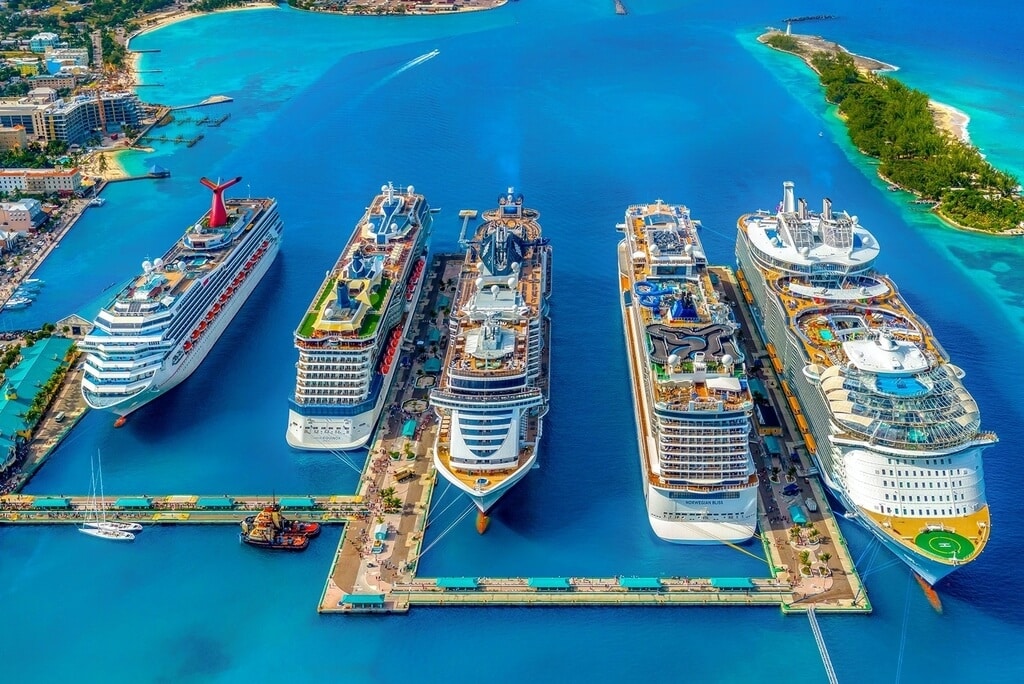Cruising is a well regulated and safe industry, but unfortunately accidents happen. This leads to the question that clients often ask me:“I suffered a personal injury on a cruise ship – who has jurisdiction?”
This is a question that may cross your mind for the first time in a while, because whilst cruising has not yet resumed in Australia, Australians are now free to travel internationally. This includes being able to go on a cruise whilst overseas – hurray!
Those who have met me will know that I could talk or type about private international law topics such as personal injury on cruise ship jurisdiction for hours (after all, it’s what makes my job so interesting!). However, I appreciate that most of you don’t want to read a thesis on the topic. I’ve therefore restrained myself and unpacked the question of personal injury on cruise ship jurisdiction in a few main points.
1. Personal injury on cruise ship jurisdiction in international waters
If you are injured in a cruise ship accident whilst the ship is in international waters, the laws of the ship’s flag state has jurisdiction in a claim in negligence.
Every cruise ship is registered in one country. The ship usually has the name of her home port painted on her stern and also flies the flag of that country. The country that the cruise ship is registered in is known as her ‘flag state’.
Common flag states for cruise ships are Panama, Malta, and the Bahamas.
The flag state is therefore essentially the nationality of the cruise ship. The flag state’s laws apply to many aspects of the ship at all times, such as its licence to operate.
When it comes to accidents on board, the flag state governs personal injury on cruise ship jurisdiction for negligence when the accident occurs in international waters.
For example, imagine you were on a Pacific Islands cruise departing Brisbane on a vessel that was registered in Panama. If you slipped on a spilt drink in international waters, your claim in negligence would be governed by the laws of Panama.
2. Jurisdiction for personal injury in territorial waters
If you are injured in a cruise ship accident whilst the ship is in port, the laws of the country where you are docked will apply to a claim in negligence.
Taking our above example, if you slipped on the spilt drink whilst the cruise ship was docked at Mystery Island, the laws of Vanuatu would apply to your claim in negligence.
If you are injured on a ship whilst it is passing through a country’s territorial waters, there are generally two views as to which country’s laws have jurisdiction for a negligence claim: either the flag state or the geographic state. In my opinion, the law of the state whose waters the cruise ship is passing through is more likely to apply than the laws of the flag state.
3. The relevance of booking conditions in cruise ship injury claims
When you book a cruise holiday, you enter a contract with the cruise operator. You might do this directly, for example by going on to the cruise line’s website or by using a travel agent.
No matter how you book your cruise, there will be terms and conditions that apply to your cruise contract. It is important that you read and understand these terms and conditions before you pay your deposit (which I could write another article on altogether!). One contractual term that you may not give a second thought to, but which has important implications on your rights, is the applicable law clause.
An applicable law clause will be worded along the lines of, “The proper law of this contract is the law of New South Wales.”
This means that if you are injured on a cruise ship and bring a claim for breach of contract against the cruise line, the claim will be governed by the law stipulated in the contract.
Therefore personal injury on cruise ship jurisdiction for breach of contract claims is the law stipulated in the contract.
Using our example above, if the contract for your Pacific Islands cruise included the term: “This contract is governed by the laws in force in the State of Florida”, Florida law would have jurisdiction over a claim in contract law.
4. Consumer rights regarding personal injury on cruise ships
Finally, many countries provide consumers rights in addition to the consumer’s rights in negligence and contract law.
For example in the EU, consumers are protected by the Package Travel Directive which covers cruises.
In Australia, consumers have statutory guarantees under the Australian Consumer Law (found under the Federal legislation Schedule 2 of the Competition and Consumer Act 2010 (Cth). When it comes to cruise accidents, the most relevant statutory guarantees are:
- Section 60 – Guarantee to provide services with due care and skill; and
- Section 61 – Guarantee to provide services that are reasonably fit for purpose and of a quality that a consumer would reasonably expect to achieve a required result.
Your rights under the Australian Consumer Law might be specified in your booking contract. However, even if there is no notification of your rights under the Australian Consumer Law, they might still apply to you.
However conversely, just because you are an Australian consumer, the Australian Consumer Law will not always apply to you. Whether you are protected under the Australian Consumer Law will largely depend on where and how you booked the cruise, where the cruise line is based and whether they carry on business in Australia.
Looking back at our example, if your Pacific cruise was with a cruise line with operations in Australia, as well as having rights in negligence and contract law, the cruise line would owe you statutory guarantees under the Australian Consumer Law.
As a result, potential allegations available to you would be that the cleaning services and hazard inspections in the area where you slipped were not provided with due care and skill.
Why injured cruise passengers need a cruise law expert
As you can see, which country’s law has personal injury on cruise ship jurisdiction is a complex issue.
From my working example above, the slip on the spilt drink could potentially have three sets of laws applying to it:
- Panama / Vanuatu law for a claim in negligence depending on the local of the ship
- Florida law for a claim for breach of contract
- Australian Federal Law for a claim under consumer guarantees
This makes navigating such claims difficult for general personal injury lawyers. I therefore recommend that if you are injured on a cruise ship, you seek legal advice from an expert cruise lawyer like myself.
As a travel fan, I genuinely hope that you have a safe cruise and never need to consult a cruise injury compensation lawyer like me.
However, if you do have an accident on your next cruise, please reach out. I have brought successful cruise ship accident compensation claims for countless clients, giving them the financial security that they need to get their lives back on track.
If you are injured at any point during your cruise holiday you can contact me and I can advise you on any documents to gather or action to take before you come home.
One last tip – download my free Cruise Ship Accident Checklist so you know what to do if you or someone you know is injured on your next cruise. Save it your phone just incase. Hopefully you won’t need it, but if you have an accident you’ll be glad you downloaded it.
This article does not comprise legal advice and neither Victory Travel & Cruise Lawyers nor the author accepts any responsibility for it. For advice on your specific circumstances, book an appointment with a lawyer.


